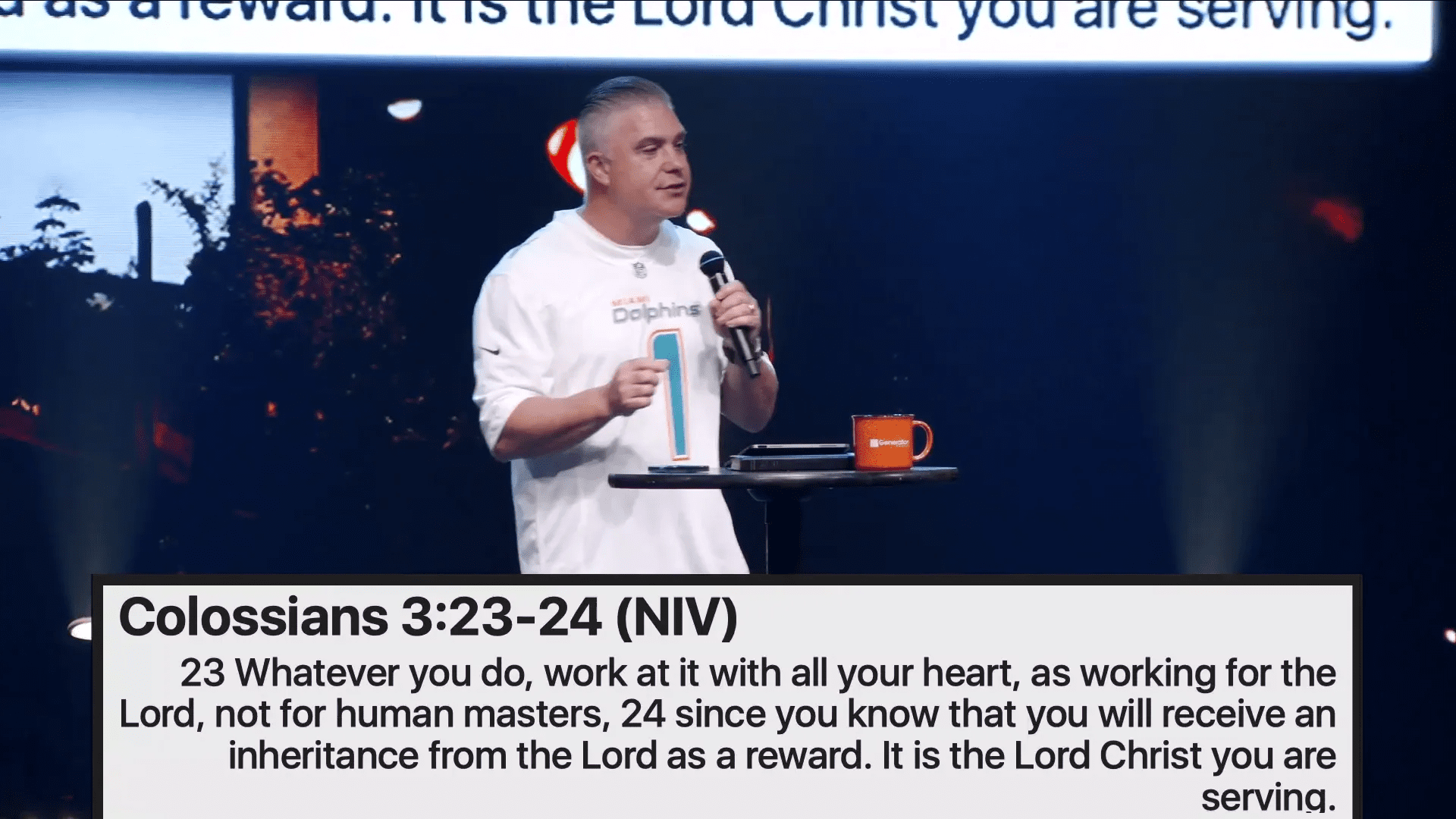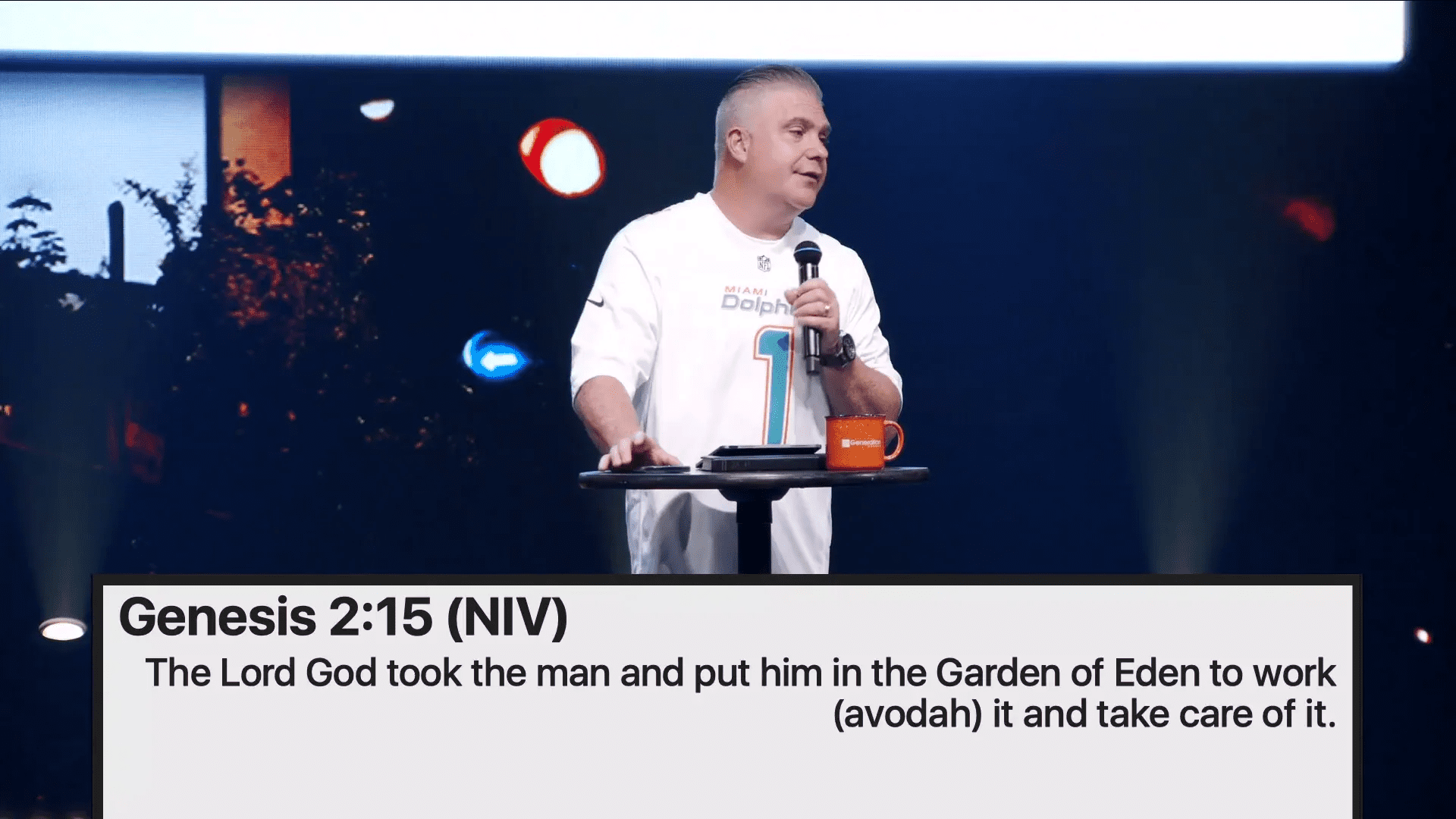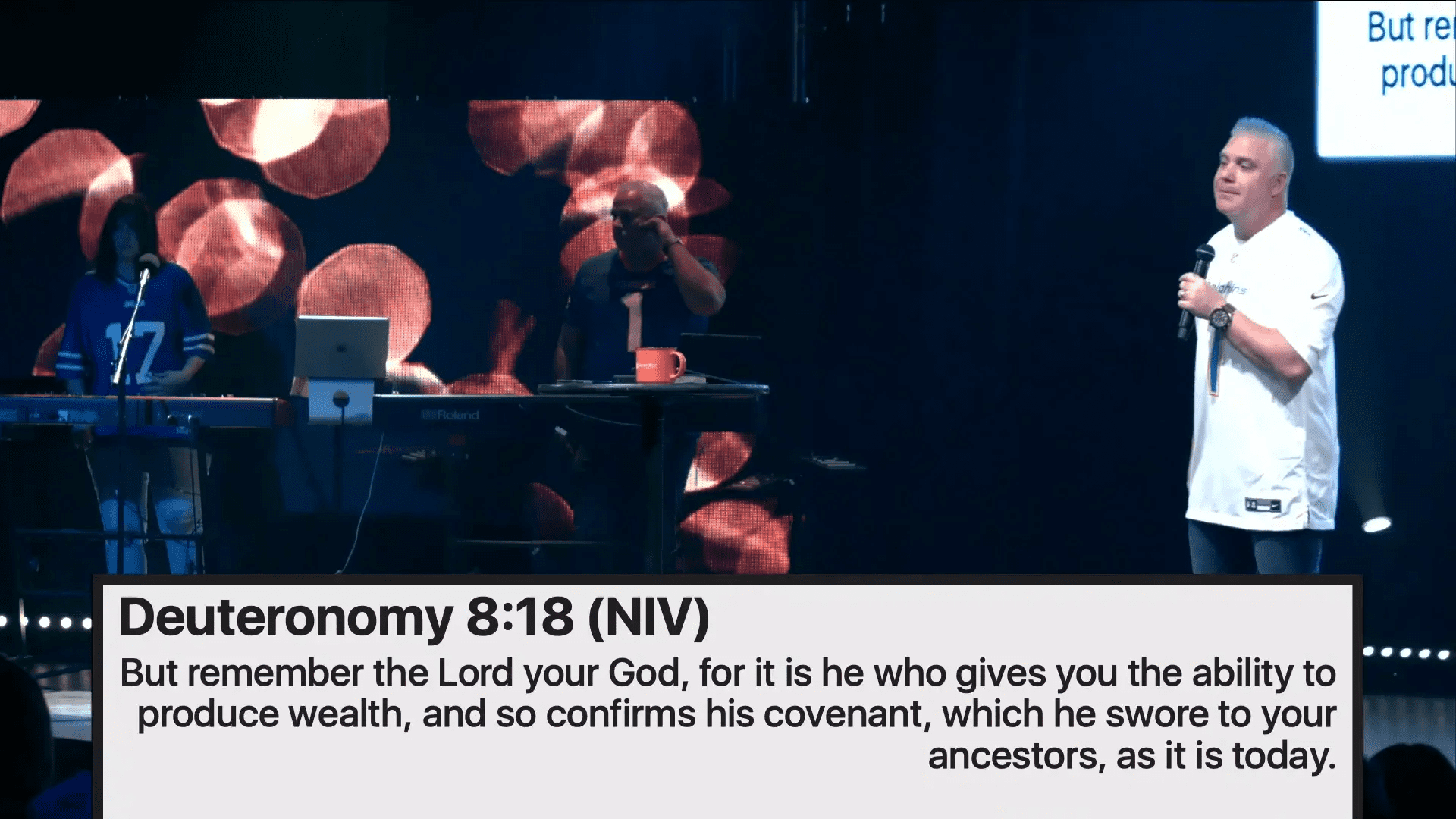Twenty First Century Temples | Week 2 | Pastor Ben Pierce
Your Work is Your Worship: Bridging the Gap Between Sacred and Secular
In today’s message, Pastor Ben Pierce explores the transformative idea that our work can be an act of worship, challenging the notion that sacred and secular are separate. By understanding this connection, we can find purpose and fulfillment in our daily lives.
The Dichotomy of Work and Worship
In our fast-paced world, the division between work and worship often leaves individuals feeling disconnected. For many, Sundays are a sacred time of connection, while Mondays bring a stark contrast filled with dread. This dissonance illustrates a deeper issue that plagues our understanding of work as a divine calling.
Understanding the Divide
Many people experience a significant shift in mindset from the weekend to the workweek. On Sundays, we gather in worship, feel uplifted, and connect with our faith. But as Monday rolls around, the joy often fades, replaced by anxiety and disengagement. Statistics show that productivity plummets on Mondays, with many dragging themselves into work, reflecting a broader cultural issue.

This divide is not just a personal struggle but a societal one. The common belief is that work is merely a means to an end, a necessary chore that distracts us from our spiritual lives. This perception can lead to feelings of guilt and inadequacy, especially when trying to reconcile our faith with our daily responsibilities.
Statistics Highlighting Monday Blues
- Monday is statistically the least productive day of the week, with an average productivity of only 30%.
- Over 50% of people arrive late to work on Mondays.
- The average person statistically will not smile until 11:16 AM on Monday mornings.
- 45% of individuals experience anxiety as they head into work on Mondays.
- 20% more suicides occur on Mondays than any other day of the week.
- The most common day for job applications is Monday morning.

These statistics paint a bleak picture of the typical Monday experience. The disheartening reality is that many view their jobs as burdens rather than blessings. This mindset shifts our focus away from the idea that work can be worship, leading to a life divided between sacred moments and secular obligations.
The Challenge of Living Between Two Worlds
Living in this dichotomy between work and worship creates a challenge for many believers. We often feel torn between our responsibilities and our desire to connect with God. This can lead to a sense of guilt, especially when our work feels unfulfilling or disconnected from our faith.

To bridge this gap, we must understand that our work can be an extension of our worship. The Bible teaches us that whatever we do, we should do it as if we are serving the Lord. This perspective shifts our focus from the mundane nature of work to viewing it as a divine calling.
Scriptural Foundation for Work as Worship
Colossians 3:23 reminds us, “Whatever you do, work at it with all your heart, as working for the Lord, not for human masters.” This scripture emphasizes that every task, no matter how trivial it may seem, can be an act of worship if approached with the right mindset.

When we recognize that our work is a service to God, it transforms our everyday tasks into opportunities for worship. This shift in perspective can lead to increased fulfillment and purpose in our lives.
Understanding Work in the Context of Creation
In Genesis 2:15, we see that God placed Adam in the Garden of Eden to “work it and take care of it.” The Hebrew word for work, “avadah,” is also used to describe worship. This connection indicates that work was part of God’s original design for humanity, meant to be a form of service and stewardship.

Understanding this biblical foundation helps us to see that work is not a curse but a blessing. It is a means through which we can express our creativity, contribute to society, and honor God. By embracing this perspective, we can find joy and purpose in our daily tasks.
The Integration of Worship and Work
When we integrate our worship with our work, we begin to experience life differently. Monday does not have to be a day of dread; rather, it can be an opportunity to serve God in our workplaces. This integration allows us to carry the presence of God into every environment we enter.

As we align our work with our worship, we become a light in the world around us. This not only benefits us personally but also impacts those we work with. Our attitude and approach can inspire others and create a culture of positivity and purpose.
Ultimately, embracing the idea that our work can be an extension of our worship enables us to live fully integrated lives. We no longer compartmentalize our faith but allow it to permeate every aspect of our existence. This transformation can lead to a renewed sense of purpose and fulfillment that lasts beyond Sundays.
The Role of Early Christians and the Marketplace
The early Christians understood the integration of work and worship. Unlike the modern separation of sacred and secular, they saw their daily labor as an extension of their faith. Jesus’s ministry predominantly took place in the marketplace, demonstrating that the divine can intersect with our everyday lives.

In fact, out of 132 appearances of Jesus in scripture, 122 occurred in the marketplace, and 39 out of 40 recorded miracles happened outside the temple. This highlights the early church’s commitment to sharing their faith in everyday settings, making worship a continuous act rather than a confined weekly event.

The Impact of Greek Philosophy on Our Understanding
As Western society developed, it adopted many elements of Greek philosophy, including the compartmentalization of life into sacred and secular realms. This philosophy contrasts sharply with the early Christian view, which emphasized the integration of faith into every aspect of life. The early Christians and Jews did not see a divide; instead, they lived out their faith in every interaction.

For instance, Paul’s ministry in Athens exemplified this integrated approach. He engaged both Jews and Greeks in the synagogue and the marketplace, showing that faith is not limited to religious settings but is meant to be expressed in daily life.
Three Key Insights on Work as Worship
Understanding that work can be worship leads to three crucial insights that can transform our daily experiences:
- Influences Lives: When your work is your worship, it has the power to change hearts and minds. Your actions become a reflection of your faith, impacting those around you.
- Purpose and Fulfillment: Viewing work as worship can lead to a greater sense of purpose. When you align your daily tasks with your spiritual beliefs, you find deeper fulfillment in your work.
- Multiplying Impact: Your influence expands when you recognize your work as an extension of your worship. As you embody this principle, you can touch lives in ways that extend beyond your immediate environment.

Influencing Lives Through Work
When work is viewed as an act of worship, it transforms the mundane into something meaningful. This perspective encourages diligence and care in all tasks, knowing that every action reflects your values. The Apostle Paul emphasized this idea, stating that believers are “letters known and read by everyone,” meaning our lives serve as testimonies of our faith.

People notice when you approach your work with integrity and purpose. This insight allows you to be a beacon of hope and positivity in environments that may otherwise feel dark or discouraging.
Finding Purpose and Fulfillment in Work
Many people struggle to find fulfillment in their jobs, often viewing them as mere means to an end. However, when work is seen as a form of worship, it becomes more than just a paycheck. Romans 12:1 urges believers to offer their bodies as living sacrifices, which includes our work and daily responsibilities.

This mindset shift allows individuals to experience a deeper connection between their faith and their daily tasks, leading to a sense of purpose that transcends the typical workweek.
Multiplying Impact for the Kingdom
Recognizing that your work is your worship can significantly amplify your impact within your community. Each of us has unique opportunities to share our faith and values through our professional lives. As the Holy Spirit dwells within us, we become vessels for God’s presence in the world.

Consider the example of individuals in various professions who embody this principle. Whether a surgical nurse or a business owner, their work serves as a platform for ministry, allowing them to influence others through their actions and words.
The Importance of Remembering God in Our Work
Deuteronomy 8:18 reminds us to remember the Lord our God, who gives us the ability to produce wealth. This verse emphasizes that our professional capabilities are gifts from God, meant to be used for His glory. When we acknowledge this truth, our approach to work transforms from obligation to opportunity.

Closing Challenge and Call to Action
As you enter your workplace this week, challenge yourself to view your tasks as acts of worship. Instead of seeing your job as a mere obligation, approach it with the mindset of serving God. Be diligent, be present, and look for opportunities to reflect your faith in every interaction.

Remember, your work can be a powerful testimony to those around you. By integrating your faith into your daily responsibilities, you can impact lives and multiply your influence for the Kingdom of God. Embrace this calling, and watch how it transforms your work and the lives of those you encounter.
